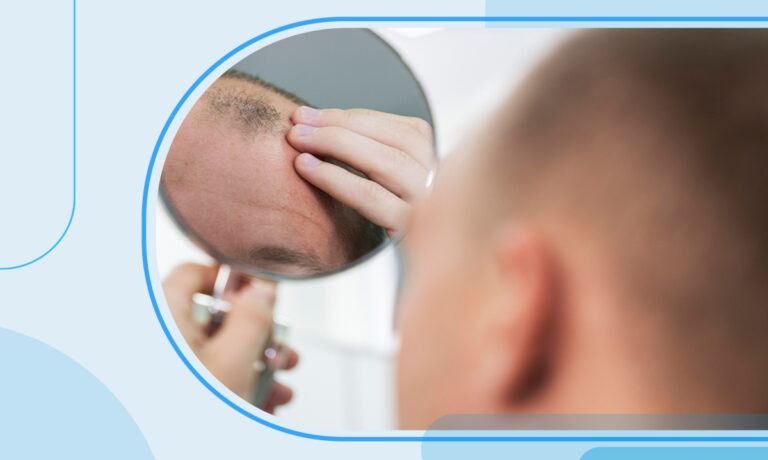FAQ : Dry Hair Causes
BURTOM HEALTH GROUP
- Burtom Hair Transplant Center
- Burtom Hair Transplant Center
- Dry Hair Causes
FAQ : Dry Hair Causes
BURTOM HEALTH GROUP
Dry Hair: Causes, Treatment Options and Diagnosis
Dry hair is a common condition that occurs when the scalp does not produce enough oil to keep the hair follicles moist. Hair dryness also occurs when the hair is unable to retain moisture, thus reducing the shine and giving the hair a dull, brittle and frizzy texture.
The sebaceous glands in our body produce sebum, an oily substance that lubricates and moisturizes the skin and hair. Without enough sebum, the follicles become susceptible to damage from external factors. Harsh hairstyles, smoking, humidity, exposure to sunlight, smoking, drugs, etc. Several factors can cause dry hair, including However, the hope is that there are treatment options that can reduce the dryness of your hair.
Dry Hair Causes
As mentioned earlier, dry hair can be attributed to a variety of causes, including harsh hair care practices, exposure to the elements, lifestyle habits or your overall health. Even shampooing every day can absorb essential oils from your hair, causing dryness.
The following are a few conditions that can lead to dry hair:
- Exposing your hair to excessive sunlight or strong winds
- Swimming in salt or chlorinated water
- washing your hair too often
- Perm, curling iron, roller, straightener, etc. hard styling options.
- Using harsh shampoos and conditioners
- Blow dry your hair regularly
- combing your hair the wrong way
- age or hormonal changes
- Living in a dry and hot climate
- Sometimes dry hair can occur due to hypothyroidism, anorexia nervosa, and medical conditions such as bulimia, hypoparathyroidism, and Menkes syndrome.
Dry Hair Care Options
If you suffer from dry hair, the good news is that you can reduce the dryness of your hair by making a few changes in your diet, lifestyle and hair care routine. Here are a few tips to prevent dry hair:
- Avoid harsh chemical treatments
- Protect your hair from sun rays
- Avoid washing and shampooing your hair every day and use a shampoo suitable for your hair type.
- Avoid frequent use of styling tools such as blow dryers, straighteners, rollers and curling irons
- Massage your hair and scalp with natural oils and apply leave-in conditioners to keep your hair soft and shiny.
- Avoid washing your hair with hot water
- avoid smoking
- For people living in a dry climate, wearing a beanie, hat or scarf when going out and avoiding prolonged exposure to strong winds will prevent dry hair.
Dry Hair Diagnosis
As they say, prevention is better than cure! Why go through a treatment-seeking process when you can prevent the condition from occurring?
- To prevent dry hair, it is very important to understand the factors that contribute to it. This will help you embrace certain lifestyle changes and change your hair care routine to best suit your hair.
- Make an appointment with your hairdresser at least once every three months. Regular trimming can go a long way in getting rid of split ends and pampering your hair once in a while.
- Use the right accessories for your hair. Avoid tight hairstyles like ponytails and buns tied with plastic or rubber bands. Instead, use soft, fabric-based hairpins to tie your hair.
Follow a diet rich in proteins, antioxidants and omega-3 fatty acids. Drink plenty of water to keep your hair and skin moist.
Dry Hair Prevention
As they say, prevention is better than cure! Why go through a treatment-seeking process when you can prevent the condition from occurring?
To prevent dry hair, it is very important to understand the factors that contribute to it. This will help you embrace certain lifestyle changes and change your hair care routine to best suit your hair.
- Make an appointment with your hairdresser at least once every three months. Regular trimming can go a long way in getting rid of split ends and pampering your hair once in a while.
- Use the right accessories for your hair. Avoid tight hairstyles like ponytails and buns tied with plastic or rubber bands. Instead, use soft, fabric-based hairpins to tie your hair.
- Follow a diet rich in proteins, antioxidants and omega-3 fatty acids. Drink plenty of water to keep your hair and skin moist.
What You Should Know
Frequently Asked Questions About Hair Transplantation: What You Should Know
Stem Cell Hair Transplant
Frequently Asked Questions About Hair Transplantation: Stem Cell Hair Transplantation
What You Should Know
Frequently Asked Questions About Hair Transplantation: Useful Information
Medical Tourism in Turkey
Frequently Asked Questions About Hair Transplantation: Frequently Asked Questions












